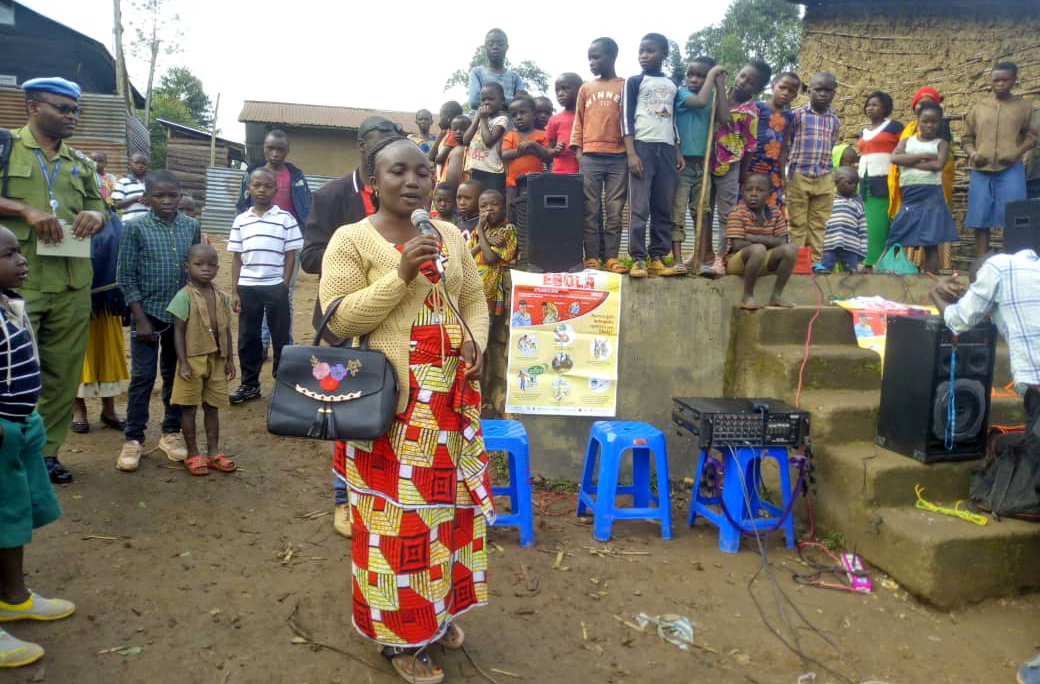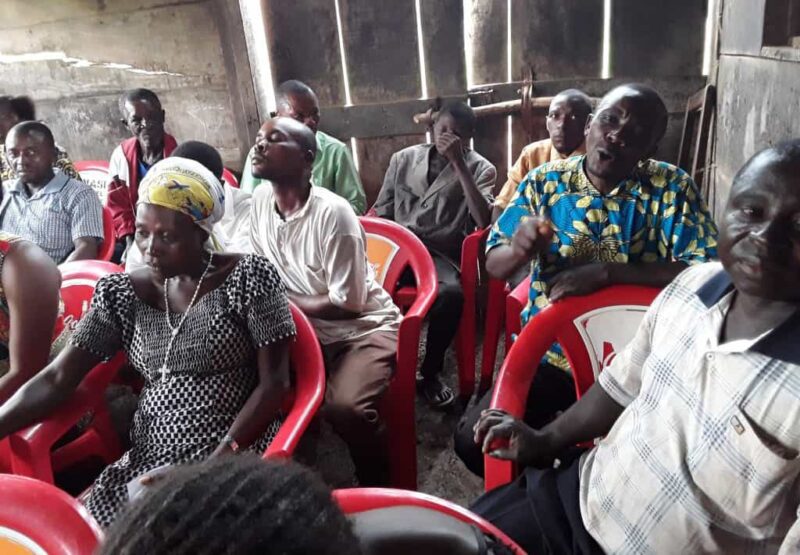“I am a nurse. I became sick with Ebola, infected by a patient who came from Mangina [where the outbreak started in DRC in August 2018]. We were unfortunate to receive the first Ebola patient in Butembo. We thought it was a normal illness, but it was Ebola,” said Kahindo Mwamini during a public debate organized by Internews in Butembo, DRC.
Aged around thirty and mother of four children, Mwamini was willing to come forward and testify in public. She also explained how she was able to survive the disease. “I survived, because I was treated very quickly at the Ebola Treatment Center (ETC). You should not be afraid. I went through it and I came out alive,” she said to community members who had the misconception that one can never come out of the ETC alive.

Ebola is a very dangerous disease that arouses fear and can spark rumors about how it is spread and treated. For example, there are accusations that response teams spread the virus and cause the death of patients. To combat misinformation, it helps to have reliable information relayed by a community member who has survived Ebola.
In the Eastern part of DRC, which is affected by the tenth Ebola outbreak in the country, Internews is addressing misinformation about the disease through a 10-minute radio bulletin called Koma Ebola, public events notably in markets and universities, and through public debates.
The radio bulletins are broadcast by more than thirty community radio stations (listen to a bulletin in Swahili, Kinande, or Français).
The public debates are organized in collaboration with the Minister of Health. Ebola survivors are invited to share their experiences with other members of the community to break resistance and fear amongst members of the community.
“You must understand that not every person who has been taken to the Transit Center or to the Ebola Treatment Center has Ebola,” said Mwamini. “Only laboratory results can determine if someone has Ebola or not. You should not believe in rumors; there is excellent medical care at the Ebola Treatment Center. Let us support the response teams and we will conquer Ebola.”
Celestin Kambale, a resident of Butembo, appreciates the participation of the survivors in the debates. “Their testimony takes away the fear of the medical care in the Ebola Treatment Center. You know some people still do not believe that the disease exists,” he said.
“These are living people and they have been in the Ebola Treatment Center,” said Claude Sengenya, teacher Computer Science and Communication at a university in Butembo. “They have experienced it first-hand because they were sick with Ebola. Their statements provide a general overview of the ETC situation. And the community can finally believe them.”
Internews’ Ebola response program in the DRC is supported by USAID.
